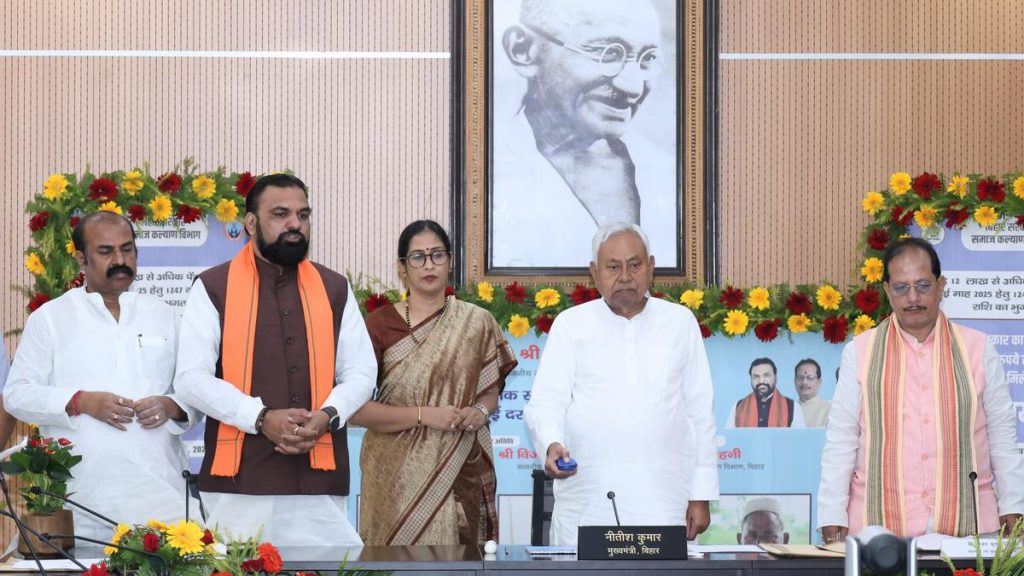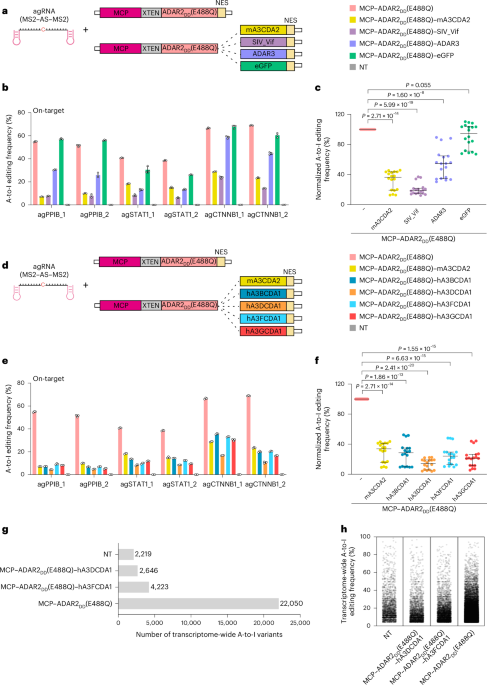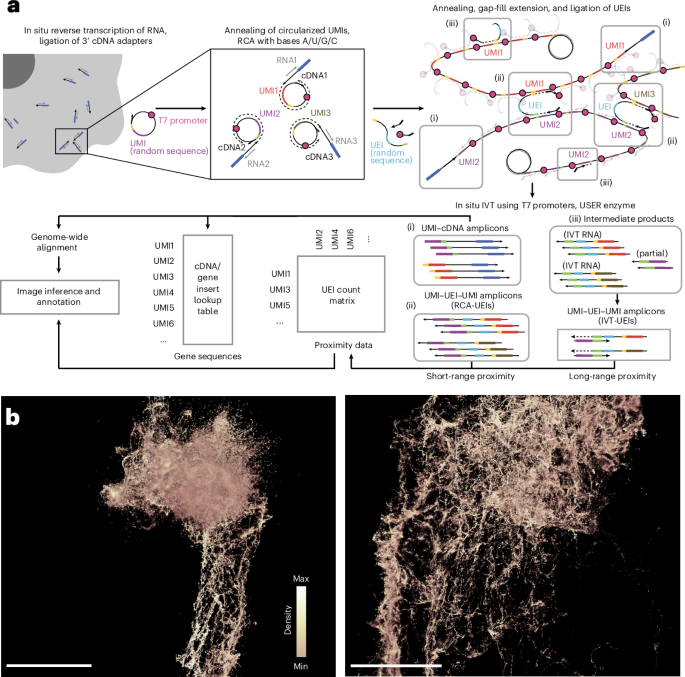Now Reading: Cell Surface Proximity and Its Induced Effects
-
01
Cell Surface Proximity and Its Induced Effects
Cell Surface Proximity and Its Induced Effects

It seems the input text is referencing scientific articles primarily related to biology, chemistry, and therapeutic research. The context provided does not contain any information specific to India or Indian issues. If this task involves processing an india-related news article for the “Indian Opinion” platform, please provide relevant input that directly pertains to Indian developments or topics for me to deliver a relevant output.
Let me know how you’d like me to proceed!Regrettably, the raw provided text does not contain a coherent or complete news article on India that can be summarized. It primarily includes reference citations and non-contextual links related to scientific studies and publications on targeted protein degradation.
If you would like me to analyze a specific news report concerning India, please provide clear and relevant content about the topic or event.It seems the input is incomplete or unrelated to a specific news article about India. Can you provide the complete raw text of the relevant article? With that, I can create the requested sections: Rapid Summary and Indian Opinion Analysis.Quick Summary:
- The provided raw text appears to be a collection of references related to immunological studies.
- Some topics covered include TCR signaling initiation, ITAM-mediated signaling, mast cell inhibition strategies in food allergies, fc receptor involvement in inflammatory diseases, and allergic responses.
- Each entry is associated with its corresponding publication details like journal names (e.g., Nat Immunol.,Front Immunol.), volume and pages, DOI links, PubMed IDs, and direct citations.
Indian Opinion Analysis:
The compilation of research references emphasizes significant advancements in immunology that have broader implications for understanding and treating allergies and inflammatory diseases. For India:
- Scientific developments outlined could inspire Indian researchers to leverage global findings for regional healthcare challenges such as allergies in diverse climates or autoimmune conditions linked to genetic predispositions.
- The accessibility of resources like PubMed ensures Indian scientists can engage deeply with international work for further innovations.
Promoting collaboration or funding niche areas from this set might help India’s long-term goals of combating rising immunity-related health issues nationally while contributing globally.
Read more at provided sources.Quick Summary:
- The input text contains references to various scientific studies primarily focused on immunology and biomedical research.
- Areas covered include B cell activation mechanisms, rheumatoid arthritis treatment, regulation of T cell receptor signaling, and glycan involvement in immune modulation.
- Publications from journals such as Nature Reviews immunology, The Lancet Rheumatology, and ACS Central Science are mentioned with links to further readings.
- Specific focus areas include the roles of immune inhibitory receptors like Siglec proteins and CD markers (e.g.,CD19,CD32b),among others.
indian Opinion Analysis:
India’s growing presence in biomedical research makes this diverse body of work highly relevant for scientists studying immunological diseases domestically.As India faces rising cases of autoimmune conditions like rheumatoid arthritis and allergies, understanding mechanisms outlined in these studies can aid local growth of treatments utilizing novel protein structures or reagents like anti-CD19 antibodies. Research collaboration or adopting global findings into pharmaceutical strategies could enhance accessibility to advanced therapeutic solutions within India’s healthcare ecosystem.Read more: Source
Quick Summary
- This text appears to be a collection of references from various scientific publications related to immunology and biochemistry.
- Topics covered in these papers include B cell apoptosis, immune suppression, allergy prevention, antigen-receptor signal regulation, and natural killer cell receptor antagonism.
- Publications span key journals like J. Clin.Invest., Nat. Rev. Immunol., and ACS Synth. Biol.
- Specific focus areas mentioned include CD22 ligands for B cells, Siglec-G associated immunity suppression, CD33’s role in mast cells desensitization during anaphylaxis responses, and phosphatase recruitment mechanisms within immune pathways.
Indian Opinion Analysis
While the source discusses advanced immunological mechanisms with significant promise for therapeutic applications globally, its relevance to India would primarily centre around biopharmaceutical research and potential development of treatments targeting diseases such as allergies or autoimmune disorders prevalent among the population. For Indian medical researchers and pharmaceutical industries aiming at innovation-driven growth via affordable health solutions, investments into such cutting-edge areas could foster global competitiveness while addressing public health challenges domestically.Such advancements may also strengthen India’s academic expertise in immunology and enhance collaborations between domestic institutions with international counterparts on impactful studies like the ones summarized here.
Read moreQuick Summary
- No relevant details or context about India are present within the raw text provided.
- The source text focuses heavily on scientific research revolving around cytokine biology, therapeutic interventions, and pharmacology without connections to Indian-specific developments.
Indian Opinion Analysis
While the source text does not directly pertain to India, it highlights global advancements in medical therapies targeting autoimmune diseases and cancer through cytokines. If adapted appropriately, these innovations could hold significant promise for India’s healthcare sector. With an increasing prevalence of such diseases within India due to its aging population and changing lifestyle patterns, integrating globally established therapies might improve treatment outcomes domestically. Though, effective implementation would require enhanced infrastructure and accessibility in India’s public health systems.Read moreQuick Summary:
- The provided references pertain to extensive scientific research on fibroblast growth factor (FGF) systems, their signaling mechanisms, and therapeutic applications.
- Studies focus on FGF21 receptor pathways and related biotherapeutics in treating obesity and metabolic diseases, like diabetes or non-alcoholic fatty liver disease (NAFLD).
- Various papers highlight the efficacy of engineered antibodies and novel agonists targeting FGFR1/KLB complexes for improved lipid profiles and liver health markers in clinical studies.
- Applications are demonstrated through preclinical models (diet-induced obese mice) as well as human trials showing beneficial metabolic effects in controlled environments.
Indian Opinion Analysis:
The referenced body of work illustrates significant advancements in biotherapeutics aimed at tackling global health concerns such as obesity-related diseases. For India-a country grappling with rising noncommunicable diseases like diabetes due to sedentary lifestyles-these findings highlight potential avenues for intervention using cutting-edge medical technologies. While these therapies could pave the way toward tailored treatments for affected populations, access to them is likely contingent upon affordability, infrastructure development, and collaborative research between India’s pharmaceutical industry and international entities. Neutral observation suggests sustained investment into biotechnology could enhance India’s ability to integrate such innovations into public healthcare frameworks effectively.
Link: Google Scholar Reference 91Quick Summary
- The article discusses advances in cancer immunotherapy, especially exploring bispecific antibodies, bispecific T-cell engagers (BiTEs), and trogocytosis-a cellular mechanism-for potential therapeutic application.
- Bispecific antibodies are dual-targeting molecules designed to improve precision in treating cancers by engaging both immune cells and tumor markers simultaneously.
- BiTEs are engineered proteins that recruit T-cells to eliminate cancerous cells through direct activation mechanisms. Their efficacy is highlighted in recent research studies.
- Trogocytosis, the exchange of membrane fragments between cells, is examined for its implications within the immune system-either enhancing defense or contributing to autoimmunity issues.
- The concepts of TrogoTACs (Chimeric constructs targeting trogocytosis) have been introduced as a novel method for targeted protein transfer with experimental findings hinting at possible breakthroughs in drug delivery systems.
Indian Opinion Analysis
The applications of advanced therapies such as bispecific antibodies, BiTEs, and emerging research on trogocytosis represent transformative opportunities for India’s healthcare sector. with a large population burdened by significant cancer-related morbidity rates, adopting these innovations could redefine oncological treatment paradigms nationally. Though, challenges include high development costs; ensuring accessibility remains a critical aspect likely requiring robust public-private partnerships and international collaboration for technology transfer.
Additionally, research into trogocytosis raises questions about adaptability; India’s rising biotechnology infrastructure must focus on leveraging this science while considering immunological nuances among the Indian population due to genetic variability factors-a reason why comparative trials might play an essential role before mass-rollout efforts can be safely planned.
Such advancements signify hope but demand careful navigation through scientific evaluation alongside scalable fiscal models tailored for Indian healthcare needs.























